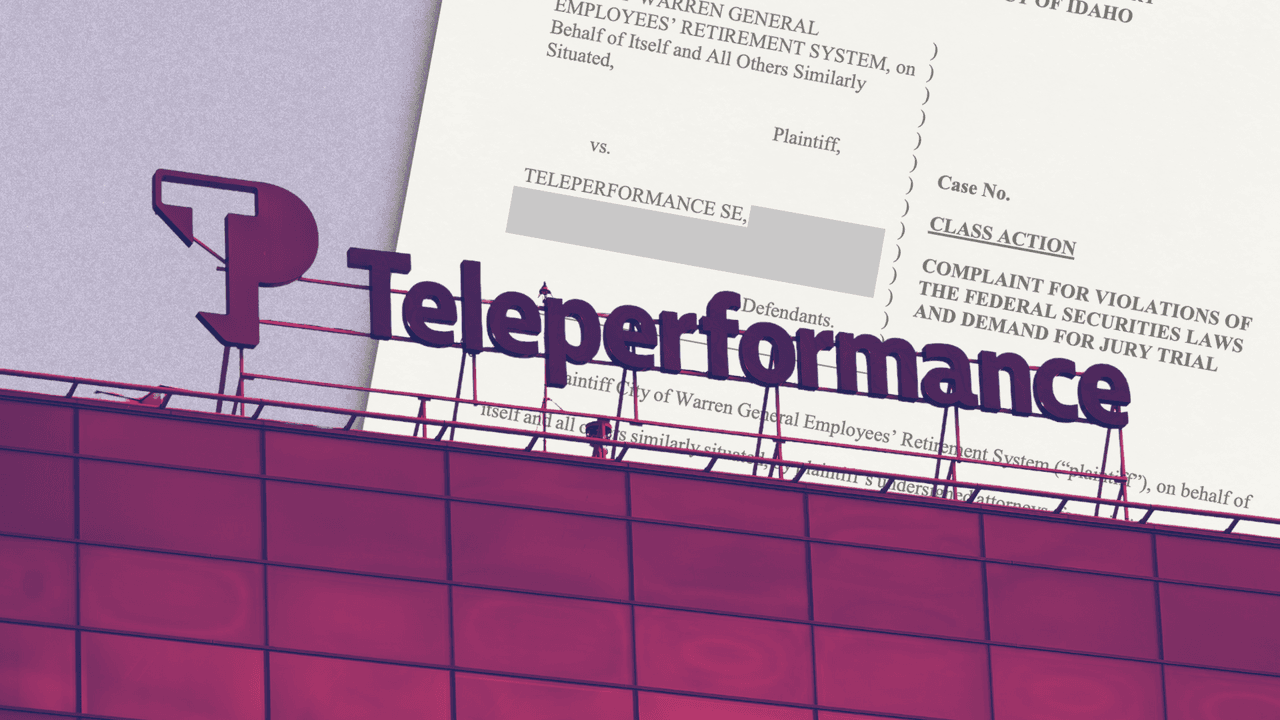
Class action suit launched over Teleperformance working conditions
The lawsuit cited TBIJ’s story about the traumatic content Teleperformance workers in Colombia were exposed to when working as TikTok moderators
A lawsuit has been filed against the global outsourcing giant Teleperformance alleging that the company’s growth was partly dependent on its workers engaging in “inappropriate, traumatic, abusive, and potentially criminal activities.”
The class action case claims that Teleperformance misled investors over working conditions for its content moderators, who were subject to “widespread occupational trauma without psychological support… extensive surveillance, and aggressive union-busting tactics”.
The case relies substantially on an investigation by TBIJ and TIME into conditions for Teleperformance workers in Colombia , who provided content moderation services for TikTok. These workers earned as little as $10 per day and were required to watch videos depicting murder, suicide and child abuse as part of their duties.
The case also refers to a Forbes investigation that found content moderators had been trained with child sexual abuse material (CSAM), and that the handling of such material potentially violated US law. A Teleperformance spokesperson said an internal audit “found no evidence of the use of or access to CSAM images in training”.
After TBIJ’s investigation was published, Edwin Palma Egea, the Colombian labour vice-minister, opened a government inquiry into Teleperformance. In the aftermath of that announcement, the company’s share price fell by a third in a day, although it has since recovered.
The class action is being brought by Teleperformance shareholders who invested between July 2020 and November 2022, including the City of Warren General Employees’ Retirement System. The lawsuit argues that content moderation was a significant factor in Teleperformance’s growth over the period, and that public statements it made about moderators’ working conditions were false or misleading.
These included “Great Place to Work” certifications, and comments made by the company’s CEO, Daniel Julien, on a 2021 earnings call. Then, he said the company’s purpose was “to be a force of good … for the employees and the communities where we operate”.
Lawyers for the shareholders said Teleperformance “suffered severe reputational fallout and investor backlash … inflicting substantial economic losses and damages on Class members” after the publication of the TBIJ and Forbes investigations.
In December, the company, which is based in Paris, signed an agreement with trade union federation UNI Global to improve labour rights for its 440,000 staff in 88 countries. It has also signed an additional agreement covering its 40,000 Colombian workers.
Teleperformance had previously filed a legal claim against a Colombian union in a move described by UNI Global as an attempt to intimidate those who had not yet joined, while eyewitnesses also told TBIJ they had seen union organisers harassed by security staff outside the company’s offices in Bogotá.
Teleperformance did not respond to a request for comment.
Reporter: Niamh McIntyre
Tech editor: Jasper Jackson
Bureau Editor: Meirion Jones
Production: Frankie Goodway
Fact Checker: Emiliano Mellino
Our reporting on Big Tech is funded by Open Society Foundations. None of our funders have any influence over the Bureau's editorial decisions or output.
-
Area:
-
Subject:




